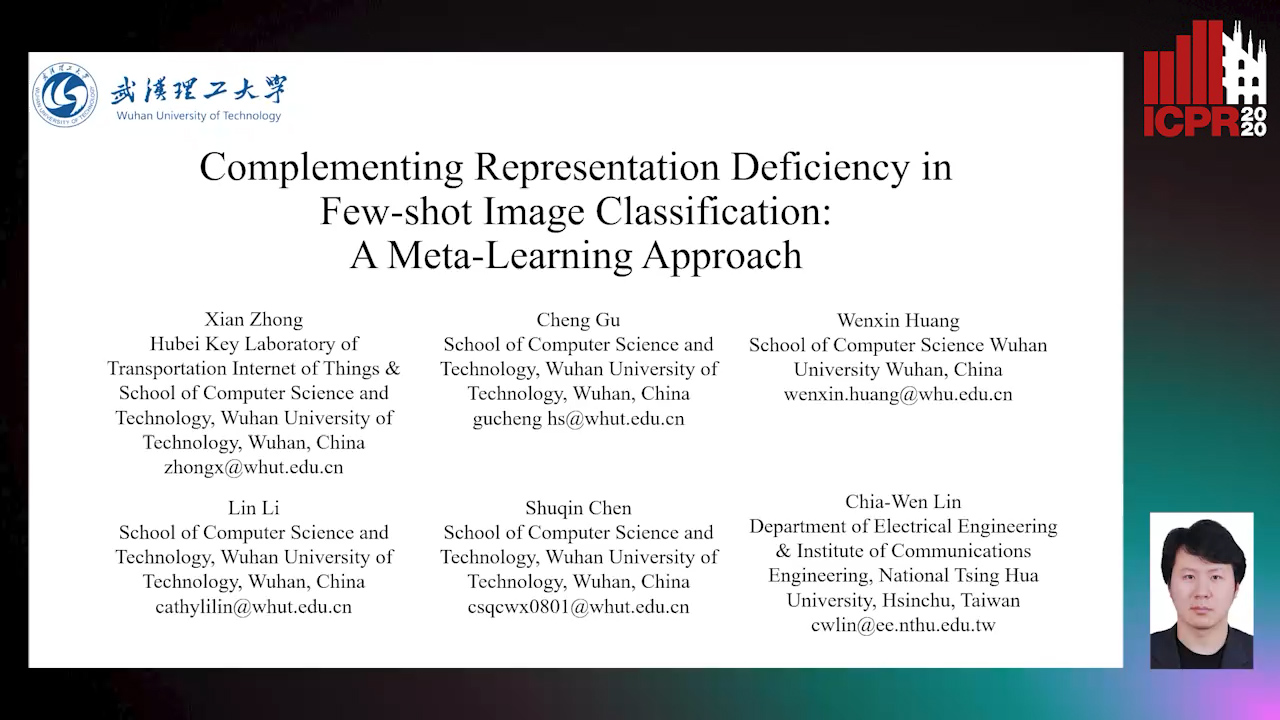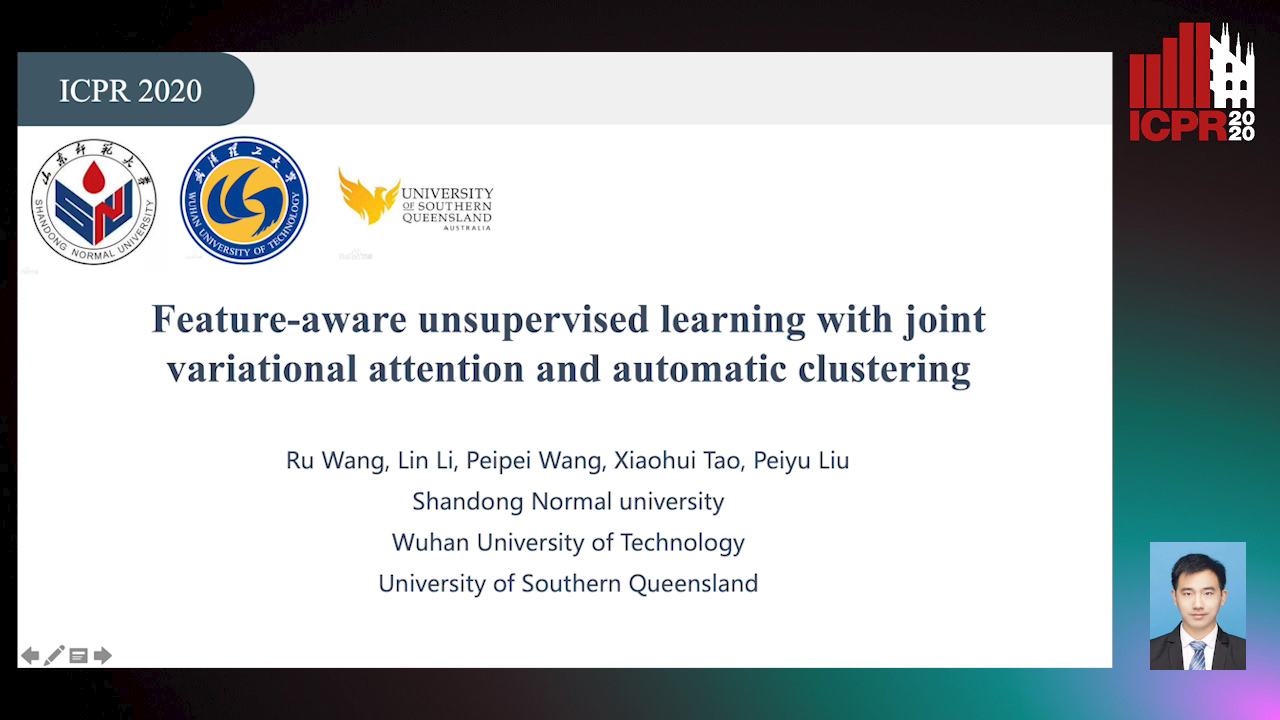Lin Li
Papers from this author
Complementing Representation Deficiency in Few-Shot Image Classification: A Meta-Learning Approach
Xian Zhong, Cheng Gu, Wenxin Huang, Lin Li, Shuqin Chen, Chia-Wen Lin

Auto-TLDR; Meta-learning with Complementary Representations Network for Few-Shot Learning
Abstract Slides Poster Similar
Feature-Aware Unsupervised Learning with Joint Variational Attention and Automatic Clustering
Wang Ru, Lin Li, Peipei Wang, Liu Peiyu

Auto-TLDR; Deep Variational Attention Encoder-Decoder for Clustering
Abstract Slides Poster Similar